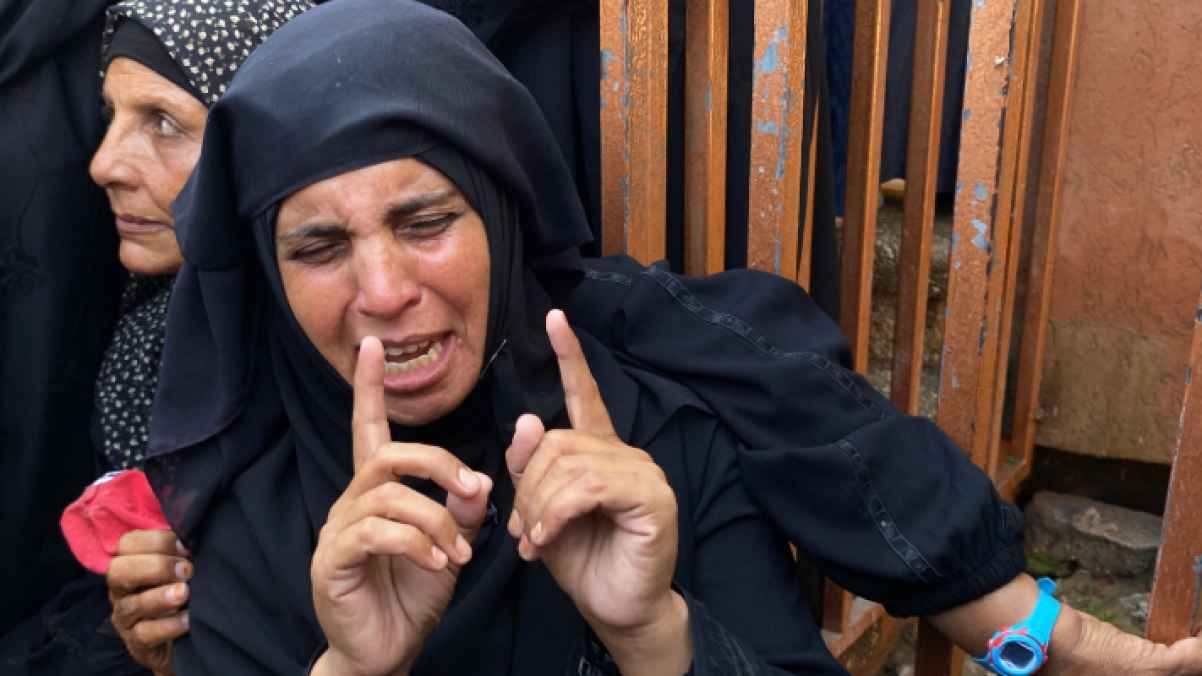Gaza.. Land of Silent Tears and Steadfast Hearts

In the besieged Gaza Strip, where the sky rains fire and the earth tightens beneath its people, the scenes that once brought tears no longer surprise anyone.
Tears have become a daily language, not translated into words, but written in the tears of mothers, the trembling of bodies, and the silent cries of those whose words fail them.
No one asks anymore: Who died?
The question has become: Who’s left?
Amid this ongoing bleeding, there are women who rise each morning—not to go to work or prepare breakfast—but to carry the entire world on their weary chests.
They wear no armor, carry no weapons, but they fight battles of a different kind—against collapse, against hunger, against fear, and against news that may arrive at any moment, borne on the wings of a drone or the echo of an explosion.
The tragedy repeats... but the pain never becomes familiar.
The ears may grow used to the sound of shelling.
The eyes may come to expect the sight of destruction.
But the heart—the small organ unseen in pictures—never adapts.
It is the heart that cries when tears run dry, that groans in silence, unheard.
In a scene no eye can ignore, a woman stands over the rubble of her home—not searching for possessions, but for fragments of memory… a photograph, a soaked schoolbook, a toy belonging to a child who is no longer here.
She does not scream. She does not collapse.
She simply gazes—as if reading the ruins of a life that never had the chance to be completed.
And in the tents, another woman calms a child who doesn’t understand why his father hasn’t returned, who doesn’t know why he only eats once a day.
She sings him a lullaby while her heart sings a dirge.
She mends torn clothes, places a small pot of water on a faint flame, and prays that the evening won’t bring more bad news.
Grief is no longer a visitor... but a permanent resident.
In Gaza, women give birth on the thresholds of fear, raise their children in the embrace of hunger, and bury their dreams with every loved one they lose.
Grief is no longer a passing guest—it has become etched into their features, into the wrinkles on their faces, into the way they hold their children’s hands—as if trying to anchor them to life before the grip of violence tears them away.
These are not merely tears—they are pure pain, spilling from the eyes because there is no other way out.
It is a quiet weeping, unheard by the media, unseen by the cameras, because it happens in moments of silence—in the isolation of the heart—when words run out and truth begins.
Women of clay and pain
And yet, they do not break.
They raise, they heal, they pray, they teach.
They continue to sing through the cold nights.
They divide one loaf of bread among ten, and spread whatever tenderness is left over those still alive.
They make life out of the impossible, and offer the world a lesson in resilience when everyone else has failed.
These women do not perform miracles—they are the miracle.
They bow before death—not in defeat, but in reverence for the life they protect.
This crying is not weakness... but a testimony of life.
In a world numb to feeling, crying has become an act of resistance.
To cry means you are still human.
That you have not gotten used to ruin.
That your heart has not turned to stone.
But what truly brings tears in Gaza is not just the scenes of death,
It’s the world’s silence, the betrayal, the promises never fulfilled, and the justice that never arrives.
The women of Gaza do not need pity.
They need someone to hear their crying—and recognize it for what it is:
A human cry in the face of a world that has lost its humanity.
